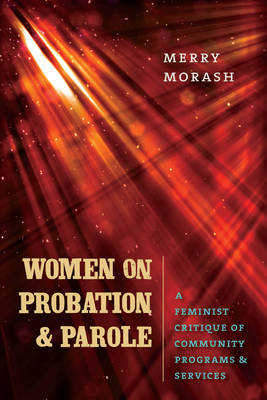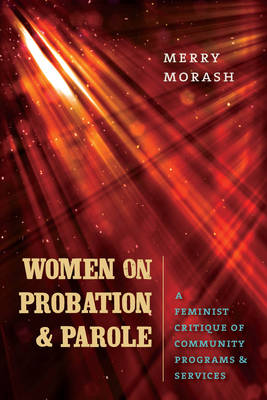
- Afhalen na 1 uur in een winkel met voorraad
- Gratis thuislevering in België vanaf € 30
- Ruim aanbod met 7 miljoen producten
- Afhalen na 1 uur in een winkel met voorraad
- Gratis thuislevering in België vanaf € 30
- Ruim aanbod met 7 miljoen producten
Omschrijving
So far there has been very limited research on the effectiveness of gender-responsive as compared to traditional supervision of women felons on probation and parole. This volume, based on extensive longitudinal, qualitative data from probation and parole officers and from in-depth interviews with the women themselves, fills this gap.
Merry Morash has based her study on data from two counties in the same state that differed markedly in their approaches to supervision. Gender Responsive County emphasized identifying and meeting a wide range of needs unique or common to women offenders. Traditional County emphasized compliance with rules and similar treatment for women and men. Within this comparative frame, Morash discusses life issues of women offenders, including dangerous places where they live, relationships with partners and children, and reliance on a mix of criminal and prosocial support networks. She documents change and demonstrates how a dedicated and innovative team of probation and parole officers apply a gender-responsive approach to produce positive outcomes for women addicted to drugs or dependent on destructive and abusive partners.
Specificaties
Betrokkenen
- Auteur(s):
- Uitgeverij:
Inhoud
- Aantal bladzijden:
- 208
- Taal:
- Engels
- Reeks:
Eigenschappen
- Productcode (EAN):
- 9781555537203
- Verschijningsdatum:
- 11/05/2010
- Uitvoering:
- Paperback
- Formaat:
- Trade paperback (VS)
- Afmetingen:
- 163 mm x 228 mm
- Gewicht:
- 294 g

Alleen bij Standaard Boekhandel
Beoordelingen
We publiceren alleen reviews die voldoen aan de voorwaarden voor reviews. Bekijk onze voorwaarden voor reviews.











